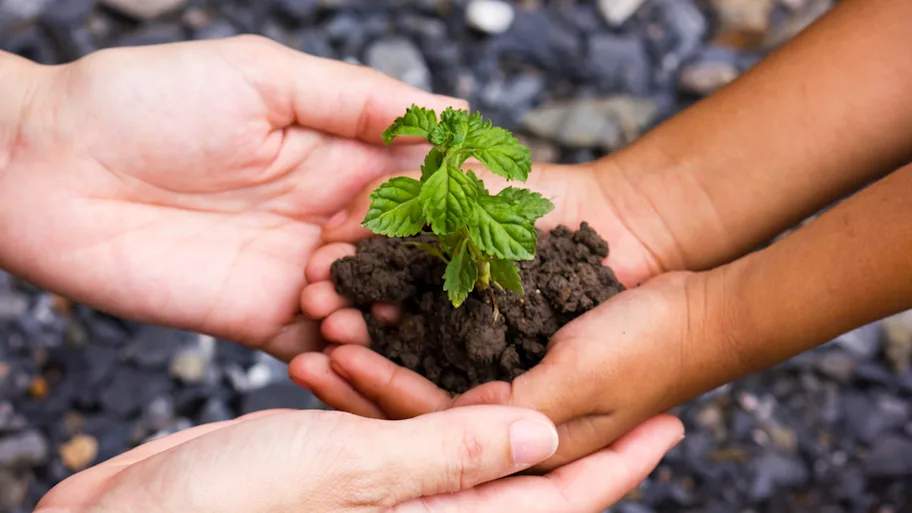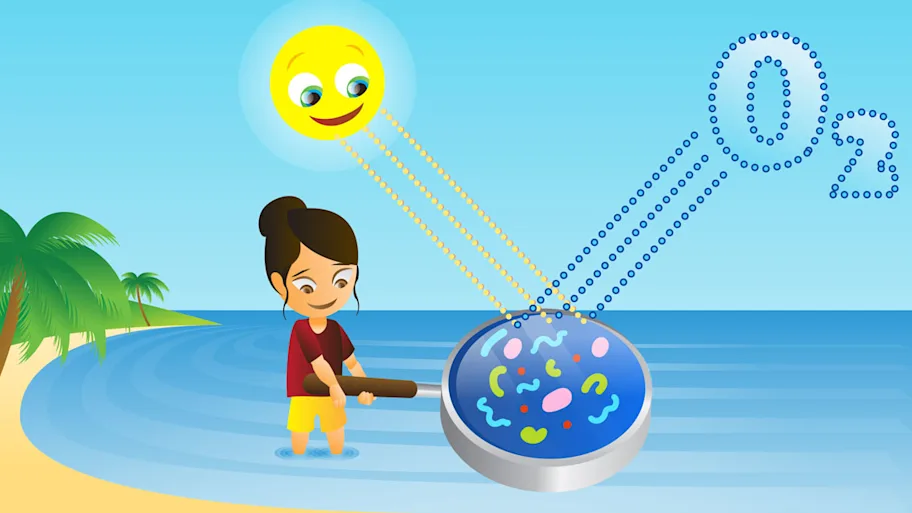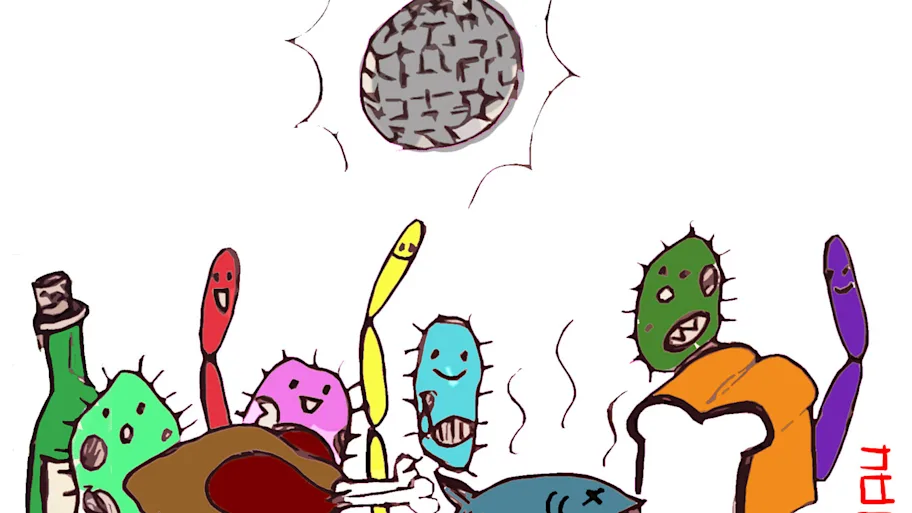
- Science news
- Young Minds
- From microbes all the way to space with Young Minds
From microbes all the way to space with Young Minds
Would you like to go on a journey where you could observe the life of tiny microbes, learn about our own, amazing human body, dive into the Red Sea, and discover how a distant satellite can help us understand our planet? Excellent! Sit tight and enjoy, because Frontiers for Young Minds has got you covered with a selection of ten fascinating articles! --- by Anna Pena Our special Young Minds bus is ready and welcomes you on board. We will be visiting four different places full of remarkable curiosities. Make sure to hold tight and to keep your eyes open. Already fastened your seat-belts? Then let's find out what our first stop has to offer us! Stop 1 – Microbes and Other Tiny Beings To be able to see our first attraction, you'll need to sit down and look through the lens of a microscope. If you thought that ants were really tiny, look at the microbes! They may seem insignificant at first glance, but they can greatly affect much bigger organisms - some of them can even help save cute koalas! Researchers from the University of California highlight some powerful microbes in their article Even Superheroes Need Help Sometimes. So, it is definitely possible to be small and powerful! Convince yourself further by finding out in this article how a scientist from the University of Oxford and her co-authors discovered that singular cells can group together like an army and fight monsters far bigger than themselves. Let’s leave these little creatures for now and go back to our bus. Belts fastened again? It’s time to move to the second stop. Stop 2 - Amazing Human Bodies Backing away from the microscope, we can rest our tired eyes and look at something bigger and maybe more familiar – our amazing human bodies! You should definitely pay some attention to our brains. You know how sometimes you just cannot remember what you ate for lunch just three days ago? Well, there are some people who rarely forget - they remember every single day of their lives! If that article inspires you to exercise your own memory, then you will definitely be fascinated by the work of a researcher from the Northwestern University. In his article, he explains how sleeping helps your brain to gather information, and what you can do to make this process even more effective! Regardless, please don't worry if you still cannot recall yesterday’s meal - it is perfectly normal. In fact, since the internet makes so much information available to us, we can use our noggins for things other than remembering every single date that we hear in history class. While We Can’t Replace Our Brains with the Internet, as two scientists from the University of Virginia will tell you, we can nonetheless benefit from their abilities in a smarter way. Let’s stay on this stop a little bit longer, shall we? You might have learned by now how our brains can do incredible things. But what if things aren’t going as well as expected? Even though they are an amazing organ, sometimes they can simply fall out of balance and can lead to a mental illness, like depression. Since depression is a very common condition, many scientists work hard to come up with new treatments. Pause for a moment and let researchers from the Monash Alfred Psychiatry Research Centre tell you how Using Magnets to Stimulate the Brain Helps People With Depression. OK, enough of brain talk now! You probably know that if we want to use our minds at all, we have to make sure that the rest of our body is healthy as well! One of the best ways to protect yourself from some dangerous diseases are vaccines. If you’ve never really understood why we need to get these (sometimes painful!) injections - read here what the smart people from the Université Libre de Bruxelles (ULB) have to say. How amazing our bodies are, right? Now, use your fantastic brain to stay focused because we’re moving forward! It’s time to change the landscape a bit... Stop 3 - Climate and the Sea To get to our next destination we need to head to the beach and prepare our swimming gear because we will be diving into the sea. Marine scientists from the KAUST (King Abdullah University of Science and Technology) will guide you through the warm waters of the Red Sea and explain what makes the corals that live there so special. We won’t stay in the water too long, but before we move on, let's take a look at the coastline. Did you know that the temperature on Earth is rising and it affects not only the organisms that live in the sea but also the sea itself? In fact, the sea levels have been significantly rising around the world. If you want to know what this means for us humans and for other creatures, you definitely need to read what a researcher from Imperial College, London has prepared for you! Phew! Back on the beach. We have one more fascinating stop lined up for you: SPACE! Stop 4 - Space and Glaciers You have probably heard about satellites before - objects that orbit the Earth in space - but did you know that they can be used as instruments to better understand our planet as well? For example, researchers from the University of Oslo show us how they use satellites to measure the movements of huge glaciers. Depot The driver of the special Young Minds bus needs to head home, so our journey has come to an end. What fun it was! As an experienced traveler, you are now ready to go on your own adventure! Go and plan your own exciting science trip with the articles on the Frontiers for Young Minds website!
With articles covering the range of neuroscience, earth, astronomy, biodiversity, mathematics, and health, we for sure have what you are looking for!






